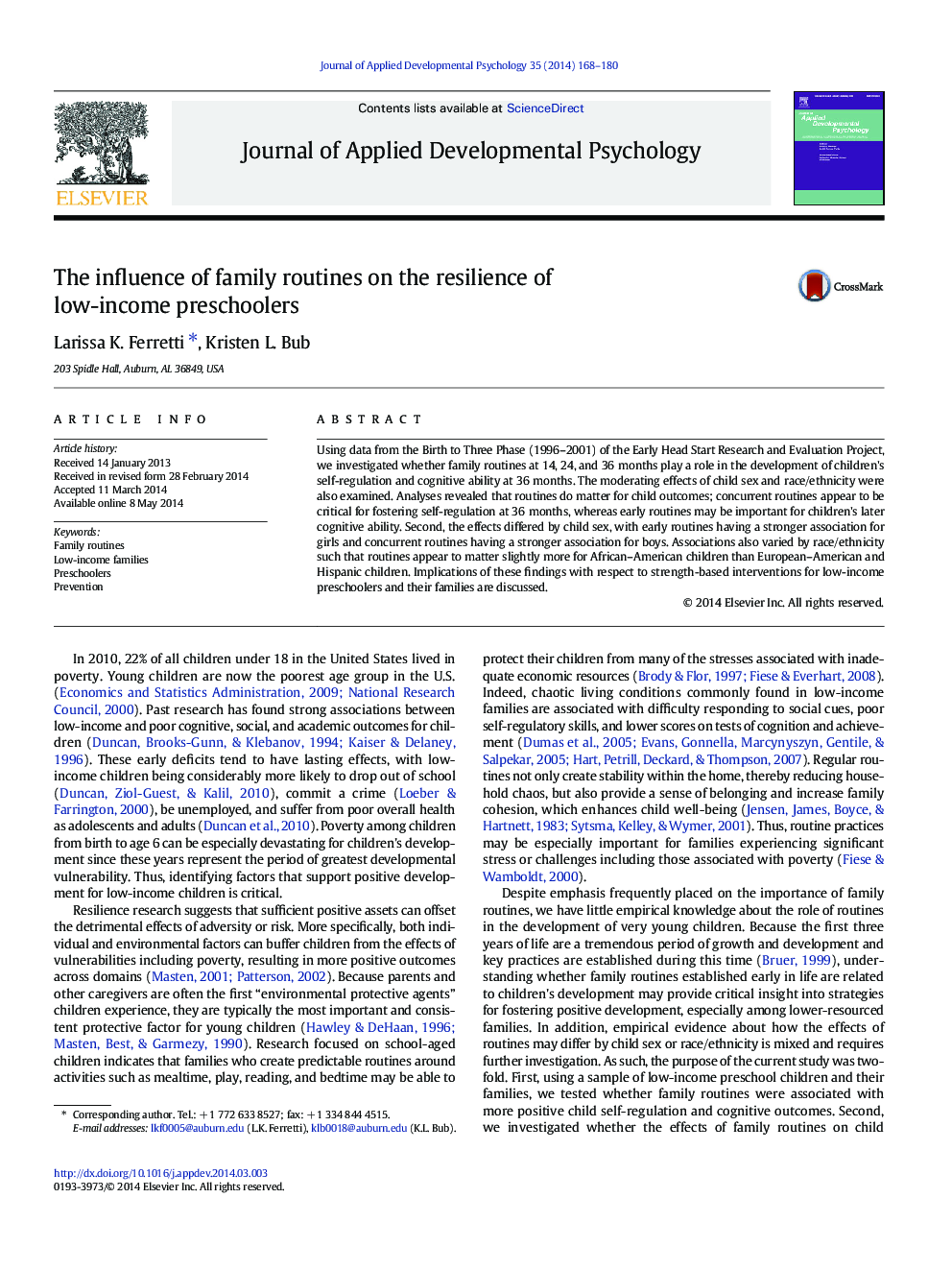| Article ID | Journal | Published Year | Pages | File Type |
|---|---|---|---|---|
| 359672 | Journal of Applied Developmental Psychology | 2014 | 13 Pages |
•Examined the role of family routines in preschoolers' development using secondary data analysis.•Concurrent routines are more important for children's 36-month self-regulation.•Early routines are more important for children's 36-month cognitive skills.•The effects of routines differ by child sex.•Family routines matter slightly more for African–American children.
Using data from the Birth to Three Phase (1996–2001) of the Early Head Start Research and Evaluation Project, we investigated whether family routines at 14, 24, and 36 months play a role in the development of children's self-regulation and cognitive ability at 36 months. The moderating effects of child sex and race/ethnicity were also examined. Analyses revealed that routines do matter for child outcomes; concurrent routines appear to be critical for fostering self-regulation at 36 months, whereas early routines may be important for children's later cognitive ability. Second, the effects differed by child sex, with early routines having a stronger association for girls and concurrent routines having a stronger association for boys. Associations also varied by race/ethnicity such that routines appear to matter slightly more for African–American children than European–American and Hispanic children. Implications of these findings with respect to strength-based interventions for low-income preschoolers and their families are discussed.
